- Like
- Digg
- Del
- Tumblr
- VKontakte
- Buffer
- Love This
- Odnoklassniki
- Meneame
- Blogger
- Amazon
- Yahoo Mail
- Gmail
- AOL
- Newsvine
- HackerNews
- Evernote
- MySpace
- Mail.ru
- Viadeo
- Line
- Comments
- Yummly
- SMS
- Viber
- Telegram
- Subscribe
- Skype
- Facebook Messenger
- Kakao
- LiveJournal
- Yammer
- Edgar
- Fintel
- Mix
- Instapaper
- Copy Link
Kirby Reed grew up in Louisiana’s “Cancer Alley” and is now a resident of West Virginia. After hearing about the proposed Appalachian Storage Hub/Petrochemical Complex, Kirby wanted to share her experience of growing up in a similar petrochemical hub and to offer us a warning.
Along the Mississippi River Valley from Baton Rouge to New Orleans, Louisiana, lies a 85 mile stretch of 150 petrochemical plants. This area is known as “Cancer Alley.” In Louisiana, we have parishes instead of counties, however they are one in the same.
I grew up in Ascension Parish, about twenty miles to Baton Rouge and forty miles to New Orleans. Ours was one of the river parishes along the mighty Mississippi dominated by the petrochemical industry. This meant that pollution was a very serious health issue for many residents. When I was growing up, everyone worked for the chemical plants. My parents met while working for Shell Chemical.
Plant jobs are similar to working in a coal mine. The pay rate is high, but so are the health risks and consequences. Cancer rates in this area of Louisiana are the some of the worst in the nation. Oil companies have had to buy out entire communities surrounding the processing and manufacturing plants. Oil platforms litter the Gulf of Mexico and that use of oil has to be refined into petroleum gas, heating oil, asphalt, and plastics. The processes of refining petrochemicals often leads to spills. These chemicals can cause asthma and COPD; just two of the illnesses that my family suffered with in the community.
At age six, my father died tragically in a car accident and my family moved with my grandparents on the Amite River. It was a tiny island called Head of Island. Our sorrows and woes of our father’s passing eventually gave way to hunting, fishing, and swimming in the Amite. Little did I know, people had been dumping their raw sewage in the river. And one time a chemical company spilled their toxic waste into the waterways; resulting in a massive fish kill. The underground toxic waste storage started seeping into the groundwater causing an array of illnesses.
Every summer, on the last day of school, my two brothers and I would get off the school bus, quickly change clothes and jump into the river to cool off. My younger brother would get a double ear infection every time we would go swimming. Not long after, I fell ill with a hundred and four fever. My body was covered in a red rash and my mother rushed me to the hospital. After days of testing, the diagnosis came. I had Scarlet fever. The likely cause was a staph infection I caught from swimming in the Amite River. After that near fatal incident, I never went swimming in the river again.
It was in my ninth grade environmental science class that I became interested in the protecting the air, water, and land from these toxic facilities. However, the older I became, more oil rigs popped up, more fracking for natural gas moved in, pipelines were laid, and oil and cancer causing chemicals filled the air. The air became a toxic soup. Refineries became the norm and, while acid rain fell and our rivers were deliberately poisoned, it was too late to make a change.
Once the petrochemical companies started processing all the plastics and fossil fuels, then there stood no chance to clean up “Cancer Alley.” Rather than move to clean energy, Exxon Baton Rouge instead had released so much benzene, a known carcinogen, that the EPA cited the facility for violating the Clean Air Act. The oil and gas giant Exxon failed to properly operate and monitor flares which caused harmful air pollution. Then there was the BP oil spill also caused irreparable damage and destruction to the wildlife and the gulf seafood industry.
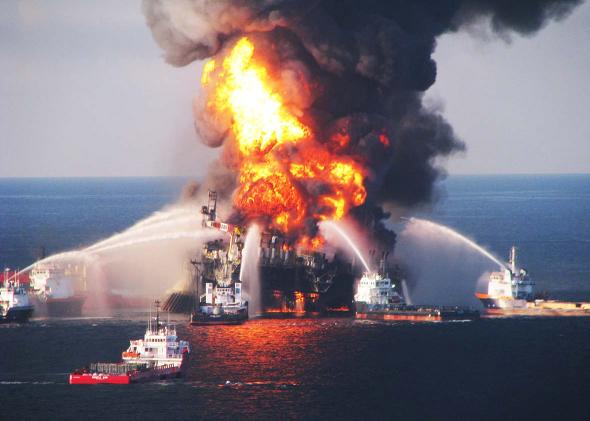
BP’s Deepwater Horizon oil ring exploded in 2010 spilling oil into the Gulf of Mexico.
When I moved back to Ascension Parish at age 13, I was more than happy to get away from some of the ugly, oppressive smoke stacks. They looked more like cities made of metal and hazardous chemicals than the wonderful, job-creating workplace the CEOs wanted us to believe they were.
I wanted to breathe fresh air and jumped at the chance to accompany my grandparents on a trip through their home state of West Virginia. I immediately fell in love with the crystal clear streams, pristine landscape, fresh mountain air and the awe-inducing beauty that is West Virginia.
In 2016, in southeast Louisiana we had a once-in-a 1000-years flood. We lost everything we owned. A lifetime of memories, gone within minutes of the merciless rising waters. I wanted to be safe; to find a home and to get out of Louisiana. I had to go back to my family roots to the place I found peace and serenity in nature. The state with waterfalls so beautiful, it’s as if you have stepped into a fairy tale. It didn’t take long to make up my mind to move to West Virginia.
Because of the state’s breathtaking mountain views, and seemingly clean rivers and streams, I made a personal vow. My arms spread open wide, my toes gripping the edge of a waterfall, I made a promise to protect this land. I would do anything in my power to keep this state untouched by big oil and gas companies.
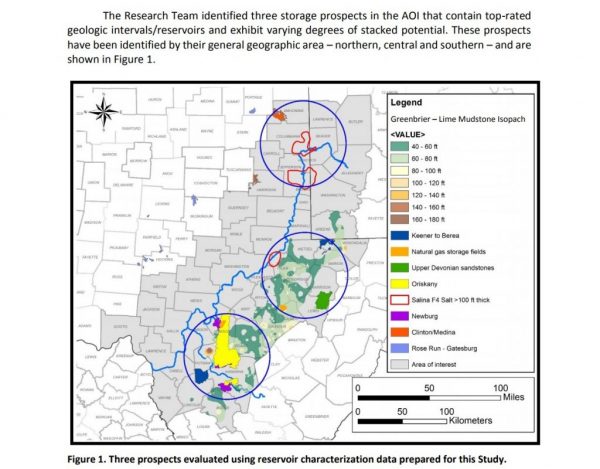
Map of the Ohio River Valley where a WVU report identified “Areas of Interest” for the Appalachian Petrochemical Hub.
West Virginia recently became a target for a petrochemical complex. Politicians and gas and chemical companies want to build what they are calling the Appalachian Storage Hub that will mirror what I lived near in Louisiana. came to this state to heal from the pain of losing all of my worldly possessions, to find a new purpose. I thought when I moved here that I would escape the grip of petrochemical con men. I cannot and will not sit idly by. I am not going to be complacent.
Lobbyists are being paid hundreds of thousands of dollars from these oil and gas tycoons writing laws for Exxon Mobil and other companies to push a petrochemical agenda on the state of West Virginia.
Unlike them, consider me a lobbyist of love for West Virginia. Maybe you were like me, sick of our uncertain economy; ready for an industry that will put this state back on the map. But are you really ready to destroy the ecosystem for a hazardous job?
Mining, fracking, and drilling for fossil fuels are proven to impact the climate. If we must dig deeper, let it be within ourselves, to improve our quality of life, not to give it away to the lowest bidder. This is my journey— to use my voice to help the people of West Virginia and the Ohio River Valley to find their voice. Protect and use that powerful voice within you to demand a different option, and say no to the proposed Cancer Alley of the Ohio River Valley.
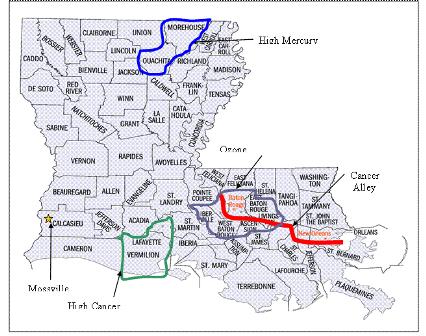
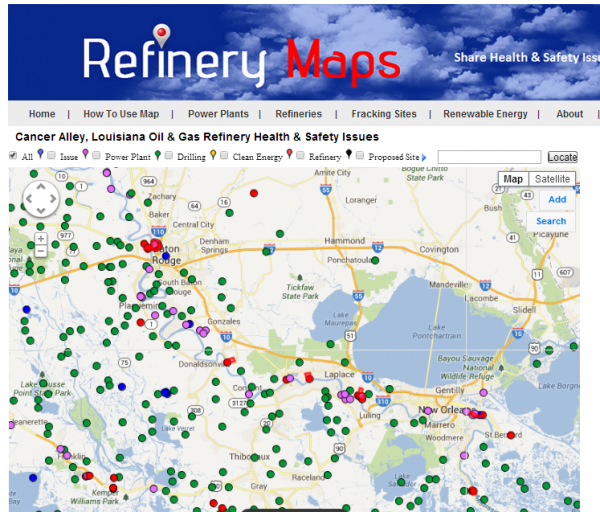


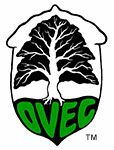
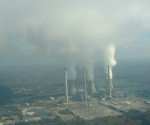
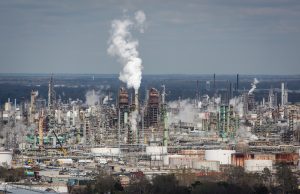






Ms. Kirby, your comments are outstanding. Thank you
You go, Kirby. I’m very proud of your speaking out for what you believe. Your passion will carry you far. Don’t give up. It will be hard to fight the money/power of big industry. Only, you people of West Virginia have the power to stop them. It takes working together. Good luck..
I found your article to be quite accurate and your writing abilities outstanding the only other item I would have included is the abundance of miscarriages included within the River Parishes known as cancer alley which was covered on the Oprah Winfrey show several years back keep up the good work Kirby
Thank you so much Louisiana Laura! I appreciate your kindness and the information you attributed.